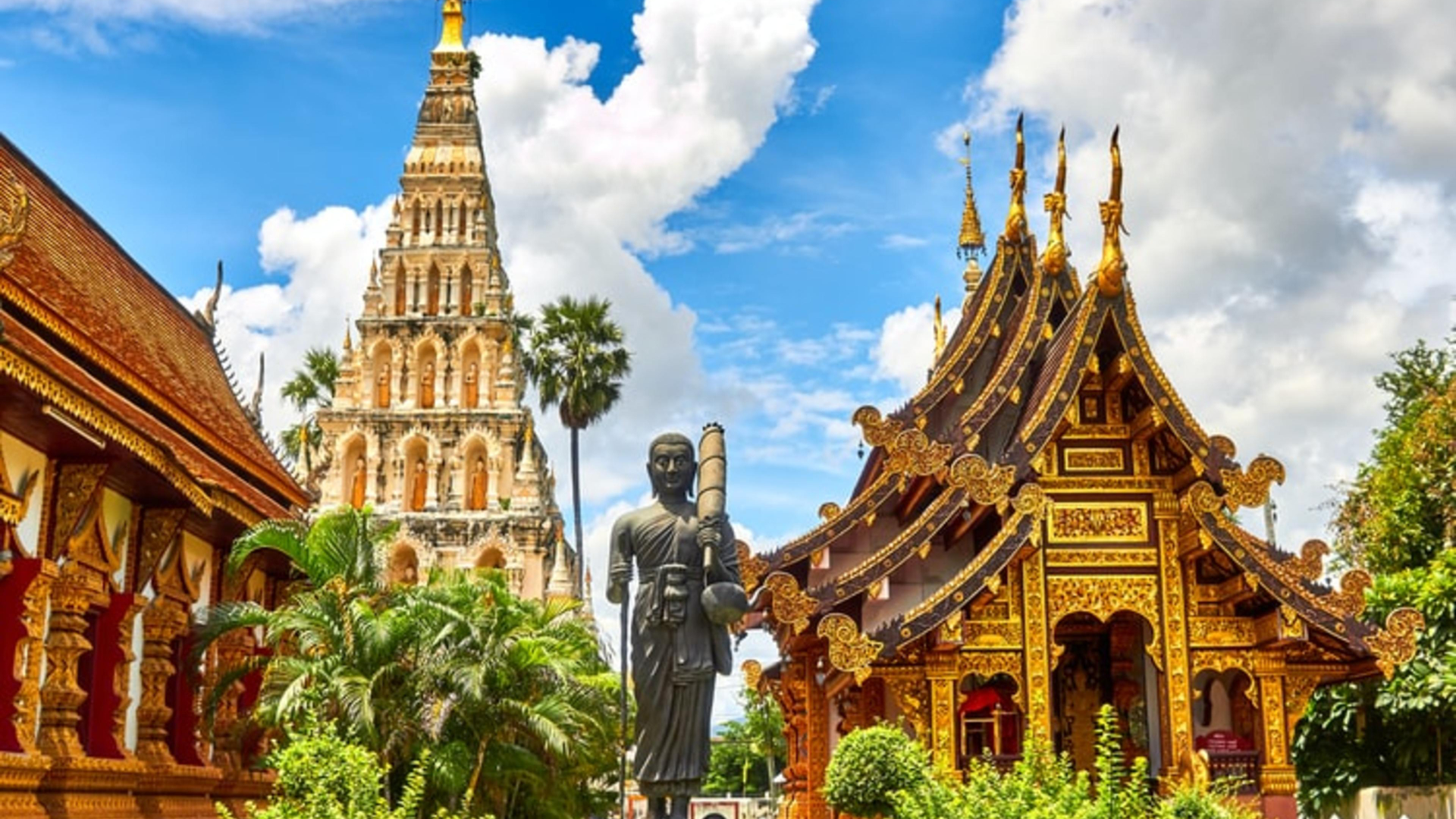As I stand beside a maroon and golden doorway, a Thai woman gently removes her shoes and glides into the Wat, the temple. She kneels down in front of a large Buddha image, resplendent in gold.
Shards of light beam through the window and throw reflections off his golden warmth across the wooden room. Her elegant hands light incense and place it at the base of the Buddha. She then performs a wei, a type of bow, three times. One for the buddha, one for his teachings (the Dharma) and one for the monks (Sangha).
The Thai people are extremely proud of their culture. Actually, Thailand is the only country in the region that was not colonized by another nation. They see their culture as unsullied by other influences, and this has produced a culture that is as complex as it is beautiful. And Thai Etiquette reflects its unique history.
There are a few basics that everyone should know before they visit, or move to this colorful country.
Thai Etiquette #1 Find Your Way Around the Wei
A wei is a bow that westerners think Thai people use as a greeting. Yet it is more complicated than that.

A wei is also demonstrating one’s place in society. There are formal rules and boundaries around a wei.
Most tourists don’t get to see that Thailand is a hierarchical society, born from “sakdina“. The wei is to show respect from your place on the hierarchy. So you need to know your place, too.
The best advice is to not wei at all until you learn about where to put your hands and elbows and when it is appropriate to initiate a wei.
Thais do not expect you to wei. You will cause no offense. If you step off the airplane and begin to wei the taxi driver, he may feel very awkward and you will look silly.
Thai Etiquette #2 Shoes Off, Clothes On
I don’t know one expat that wears shoes inside their houses. Taking shoes off at the front door is the cultural norm.

If you are lucky enough to be invited to a Thai person’s house, make sure you leave your shoes at the door, even if they tell you not to worry about it.
They will be secretly horrified that you have walked into their house with dirty shoes, yet still smile kindly.
This is particularly important at holy places such as temples and shrines.
The general rule is, If the floor has a Buddha statue on it, take your shoes off. Easy peasy!
Thai people won’t show it, but they find revealing clothing very disrespectful. It is not okay to walk around in beachwear. Generally, Thais expect you to cover shoulders and knees (for women) when visiting a temple, and men should not wear singlet tops.
Thai Etiquette #3 “Hong Nam,” Translation: Room Water
Toilets! For some westerners, this can be a deal-breaker. When entering a toilet, you may notice that it is a basin on the ground for squatting.

But don’t despair there are western-style toilets in most places you would be visiting. Going right out into the rural areas, this will change.
You must be aware that plumbing is very different in Thailand. You cannot put toilet paper in the toilet. There will always be a bin next to the toilet for paper. Thais use very little paper because they feel it is not a clean practice.
They use a spray hose to clean, and this is fondly known as the “bum-gun.” If there is no hose, there may be a bucket of water and a large ladel for self-watering.
Toilet paper may just be used to dry the skin surface. Sounds strange? Well, you may just become yet another convert if you choose to live in the Land of Smiles.
Do you consider Thailand a potential expat destination for yourself? If so, please ask me any questions you might have about expat life in Thailand. I will be happy to help.
by: Rachel Devlin


